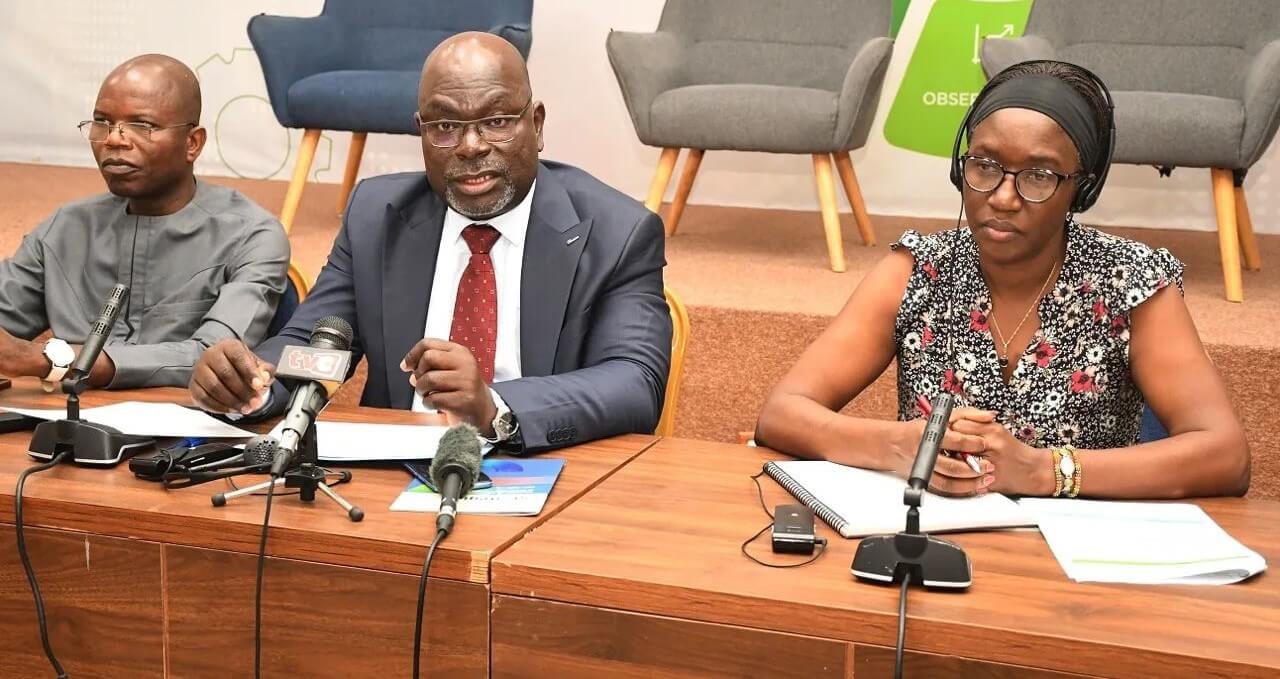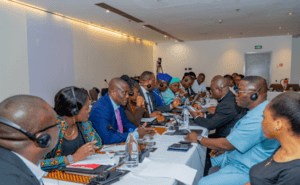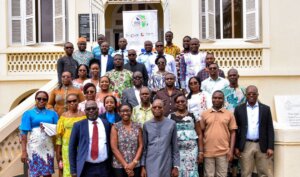
Our Projects are
Transforming African Trade
Quick Contacts
2nd Floor, Fidelity Insurance Centre Waiyaki Way, Westlands

The Ministry of Commerce and Industry of Cote d’Ivoire in collaboration with TradeMark Africa (TMA) recently convened a two-day meeting for trade facilitation officials from Ghana and Côte d’Ivoire to deliberate on measures to enhance trade efficiencies between the two countries, focusing primarily on deepening customs cooperation. Facilitated with support from the UK International Development, the meeting drew participation from the Ministries of Trade, Industry and Commerce, Foreign Affairs and Customs Cooperation, as well as Customs Authorities, border agencies at Noe and Elubo, and local government authorities of the two countries.
In his opening remarks, Mr. Sylla Kalilou, representing Côte d’Ivoire’s Minister of Commerce and Industry, emphasised the importance of boosting trade across Africa, urging the two countries to lead by example in eliminating trade barriers, while lauding TMA’s participation in the trade enabling initiatives. The Deputy Director General of the Ivorian Customs Authority, Mr Louis Kadio, welcomed the initiatives as an example of strengthening South-South cooperation, and commended organisers for the laudable move to address challenges of interconnection and facilitate trade between the neighbouring states.

The gathering reflected on the findings of a TMA-led missions that took place early this year, having identified numerous operational and infrastructure challenges impeding trade at Noe-Elubo borders – the busiest border crossing between the two nations along the Lagos-Abidjan Corridor. Among the challenges that were noted included poor state of border facilities (inspection bays, scanners, office blocks, parking lots), absence of laboratory, fire station, isolation centres for persons and animals and dedicated facilities for handling perishable and explosive items respectively.
The officials validated and mutually agreed to implement proposed interventions that would improve interconnection and border facilities, as well as fast track measures for real time resolution of non-tariff barriers (NTBs) that hinder bilateral trade. Specifically, the forum committed to working with TMA to address challenges with the exchange of custom information between the countries, harmonise standards and SPS procedures and integrate them with customs procedures at the borders, and ensure trading documents such as the T1 (document required for cross-border movement of goods) are available in English and French. It also agreed to create an enabling environment to facilitate trade at border crossings, particularly at Noe-Elubo by improving existing trade related infrastructure and equipment at the border. In 2022, Trade between Côte d’Ivoire and Ghana, largely involving palm oil, beauty products, and ceramics, was estimated at $560 million.
“By supporting implementation of these initiatives in Côte d’Ivoire and Ghana, the volumes and value of trade could increase significantly, thereby contributing to economic growth and prosperity in both countries and in the region,” remarked Anthe Vrijlandt, Director of Strategy and Partnerships at TradeMark Africa.

The forum culminated with a consensus to formalise and strengthen the Joint Noe-Elubo Cross Border Trade Facilitation Committee to address trade facilitation related challenges at the border.
Meanwhile, in Benin, TradeMark Africa collaborated with the Ministry of Trade and Industry to coordinate a multi-stakeholder engagement to commence the development of the Benin National Trade Facilitation Strategy. The engagement brought together representatives in government, private sector, and civil society, discussing the opportunities and challenges of Benin’s trade. The workshop also marked the launch of the TMA Benin Country Programme and Work Plan/Programme. TMA held meetings with players, including the Ministry of Trade and Industry, Benin Chamber of Commerce and Industry, Customs and the World Bank, to align on potential areas of collaboration.
These milestones are part of TradeMark Africa’s efforts, together with its partners, to reduce the time and cost of trading in Africa, in alignment with the objectives of the African Continental Free Trade Area (AfCFTA), which seeks to create a single market for goods and services in Africa.
“By addressing the structural issues that impede trade, countries have a lot to gain in terms of reduced trade costs, improved business competitiveness, and new opportunities for businesses to sell their products. TradeMark Africa remains committed to supporting its wide range of partners in government and private sector to eliminate trade barriers and promote regional integration. We shall work closely with these partners to implement the agreed actions and achieve the desired outcomes,” said Harriet Gayi, Director, West Africa and AfCFTA, at TradeMark Africa.
Disclaimer: The views and opinions expressed in this article are those of the authors and do not necessarily reflect the official policy or position of TradeMark Africa.